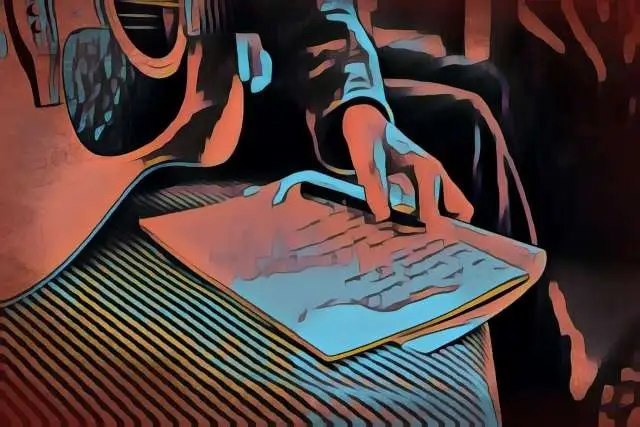One of the most difficult parts of the creative process is knowing where and how to begin. Songwriting comes easier to some than others, but anyone can commit to writing music if they have the confidence and wherewithal to get started.
We've compiled nine different methods for learning how to start a song. Below, we'll walk you through kick starting the songwriting process and share a couple of music writing tips so that you can create without limits. Let's get started!
Unlocking How To Write a Song
If this is your first time writing a song , the experience can be daunting, to say the least. After all, we naturally have the expectation that we will be able to write a song just like our favorite artists right off the bat.
However, the reality is that the writing process can take many years to master, especially since there are so many different components involved. When you decide to create a new song, you're choosing chord progressions; you need to write song lyrics, a song title, find the perfect melody -- the list goes on.
The main point is that choosing to begin writing can be overwhelming, but don't let that discourage you. You can make your job a little bit easier by committing to a songwriting method and sticking to it. Oftentimes, all we need to unlock our creativity is the courage to start writing.
As you become more experienced, you might try out different starting points, or come up with your own methods entirely. Writing a song isn't easy, but you have everything you need to create musical ideas of your own. Your favorite songwriters had their first songs too, which probably weren't amazing, but it led them to where they are today.
Mindset is everything-- before sitting down to write, remind yourself of your capabilities so that you can focus more on the music.
How To Start A Song: 9 Different Methods

Without further ado, here are nine different ways to start writing songs. If one method doesn't gel with you, move on to the next one! There are no rules when it comes to music. Whatever gets you to start creating is worth exploring.
1. Build A Groove
One of the most intuitive ways to start up a song is by starting with a rhythmic element of the music. You could do this by producing a basic beat , finding a drum loop, or even just patting your hands to a tempo. During this process, make sure you use an online metronome to help you keep pace.
Once you get the rhythm going, you might have melodic ideas start to come to mind. Keep your voice memo app recording, and let your ideas run wild!
2. Start With A Chord Progression
Chord progressions serve as the building blocks for many songs, making them a powerful songwriting tool. Grab your favorite instrument and pluck out a common chord progression . Sometimes keeping things simple can make it a lot easier for you to navigate the beginning stages of a song.
If you don't play an instrument, you can look up free chord progression loops through a sampling site or via YouTube.
3. Pick A Your Song Structure
Creative frameworks can make songwriting much more approachable. A couple of common song structure types include Verse-Chorus-Verse-Chorus-Bridge-Chorus or simply Verse-Chorus-Verse-Chorus. By starting with your song's structure, you can start to fill in the missing gaps.
In some cases, it may make sense to write a song all in one sitting. Other scenarios may call for you to work on the chorus one day and other elements another.
4. Write Lyrics
A song doesn't necessarily have to start with a melodic element. If it feels more natural to you, craft the lyrics first. Focus on creating phrases that will captivate the listener's attention through vulnerability and honest story telling.
Also, aim to create a cadence as you would when writing poetry—creating a sense of pacing while writing lyrics will make it a lot easier for you to set the words to music moving forward.
5. Start with a Note
Even if you're new to crafting your music, you can start your song with something as simple as a single note. Start by singing any tone that comes to mind. From there, you can start singing words to that note and begin to string together the pieces of a song or melody. The key to this method is allowing yourself enough time to realize an idea.
6. Layer Some Loops
If you have access to a DAW , you can quickly start a song by layering some loops. Drag in a drum loop, a melodic idea, and even a chord progression. Bass lines can also help you get inspired quickly, too.
7. Find a Reference Track
A great way to learn how to write a song is to see out a strong example. Reference tracks don't just serve as excellent inspiration, but they can also help you unlock the magic of songwriting within a short period of time. The next time you listen to your favorite tunes, spend time dissecting how the piece was created.
What sort of song structure was used? How did the artist transition from one section of a song to another? Take these insights into your own creations to make stronger music. Try to hear how different melodic structures create various moods in music. If you've studied a bit of music theory, you can also use the basic concept of melodic motion to help you fill in the gaps in between various song sections.
8. Create a Melody or Riff
A strong melody part or riff can certainly serve as the basis for a song. Play around on your instrument, or even with your voice, and see what you can come up with! You can record multiple ideas on voice memos and play them back to see what sticks. Riffs often end up as part of the chorus or hook of the song, but feel free to experiment with your melody's placement throughout your composition.
9. Collaborate With Others
One of the most important skills as a musician is learning how to collaborate with other creators. Fortunately, this also serves as another great way to jumpstart a new song. Set up a session with a friend who plays guitar, likes to sing, or writes lyrics. You can also collaborate remotely and find musicians to work with via social media if you don't have a local community.
5 Additional Songwriting Tips
Now that you've started your song, it's time to see it through. Here are five additional songwriting tips to help guide you through the process.
Stay Calm
When it comes to creative processes like songwriting, you can quickly get in your way. Music is one of the few skills that can be largely intuitive, so you can't always think your way into a great song. When you sit down for a session, try your best to let your ideas flow without overanalyzing them.
Practice Makes Perfect
Even the great songwriters of today have written poor music. If your first song isn't you're favorite, remember that it's still a stepping stone in making the next song better. The best thing you can do to improve your abilities as a musician is to stay consistent and persistent, especially when it gets complicated.
Take Time To Become Inspired
It's challenging to write a strong song without sources of inspiration. You need to consistently write music in order to improve, but it's just as important to take breaks when you feel the need to. Inspiration can find you anywhere-- whether that's watching a favorite movie, going on a hike, or spending time with your loved ones, taking time off can help you form different songs. You need to have input in order to have an output.
Seek Out Feedback
Asking for song feedback is incredibly brave. After all, songs contain some of our most vulnerable feelings and thoughts. If you can muster up the courage, you'll start to see your songwriting soar. Even if you don't know any skilled musicians personally, there are plenty of online threads where you can seek out advice. You might just meet a couple of new collaborators in the process.
Don't Give Up!
A song starts when you choose to create it. It can take some practice to convert raw material into a full composition, but it will undoubtedly get easier with time. In moments of doubt, remember how far you've come.
Anyone Can Be A Songwriter
Learning how to build a song from scratch can be challenging at times, but hopefully, these strategies make it easier for you to explore your inner creativity. Remember that everyone starts from somewhere, and a song begins whenever you put your energy and effort behind it. Have fun turning your ideas into music!





